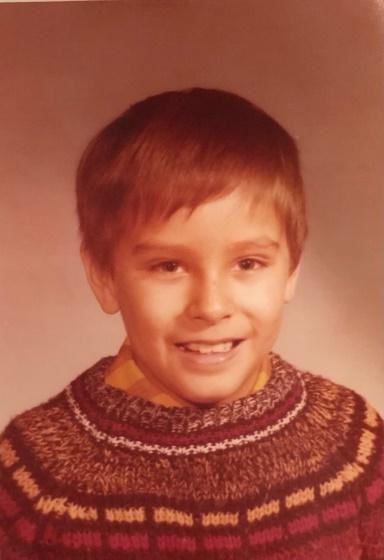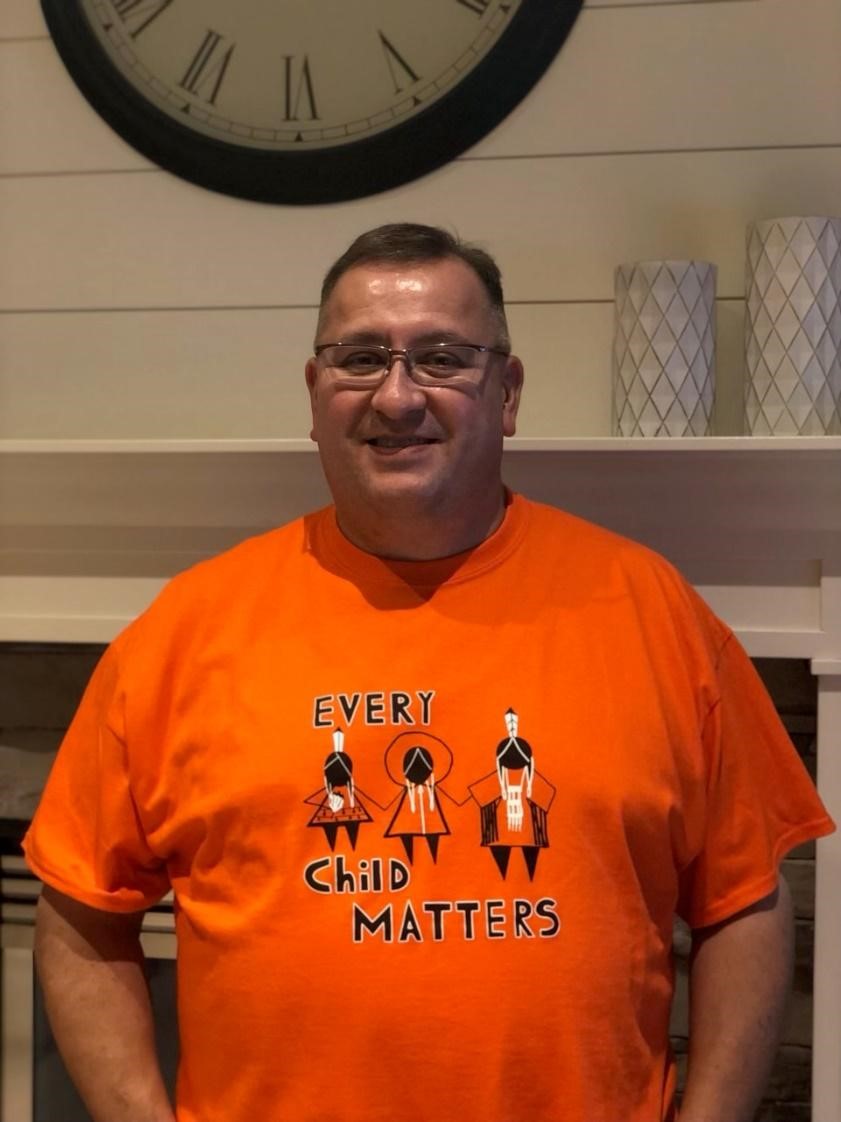Truth and reconciliation brought hope and a pathway to resilience
Greg ZoBell - 28 September 2021
With permission from his family, Greg has penned a story showing the impact residential schools and the Sixties Scoop have had on his dad, and how this has inspired him to make a difference in his community through dentistry.
Here is his story.
Orange Shirt Day was designed to commemorate the residential school experience. It is to witness and honour the healing journey of the survivors and their families, and to commit to the ongoing process of reconciliation. Wearing orange is inspired by Phyllis Webstad and her traumatizing first day of school. She wore her brand new orange shirt to school, a gift from her grandmother, and had it ripped away, never to be seen again. We wear orange to recognize the experiences that survivors endured within the residential school system and show a collective commitment to ensure every child matters. 
Our family has a special appreciation for this day. My father’s birth-mother was a residential school survivor and likely carried with her some deep emotional trauma from her experiences there. While pregnant with my father in 1966, she worked in Taber, Alta. She laboured on a beet farm with the intention of returning home to her community in northern Saskatchewan (Ahtahkakoop Cree First Nation) as her delivery approached. Unexpectedly, my father was born prematurely. When he was around two months old, he was taken from his mother against her will and placed in the foster care system. He officially became a victim of what is now called the “Sixties Scoop.”
The Sixties Scoop was a government attempt to assimilate Indigenous cultures and communities. Upwards of 20,000 First Nation, Métis and Inuit children were forcibly removed from their homes and placed into the foster care system.
For some of the most formative years of his life, my father was moved from foster home to foster home. A cigarette-burn scar on his leg is one reminder that he never felt the love and affection that only a mother or father can give. He was stripped of his family and culture in a similar way to the thousands of other victims of residential schools and the Sixties Scoop.
At five years old, my father was adopted into the ZoBell family along with Rick, another child of the same age. Rick and my father bonded over their similar experiences. However, my uncle Rick struggled with addictions and depression and eventually took his own life in 2006.
My father still struggles with some of the things that have been taken away from him. But he has been an amazing example of resilience. He was blessed with a loving adoptive family who supported him in eventually finding a way back to his roots. He now has a career that heavily impacts Indigenous people and just recently had the privilege of meeting with Phyllis Webstad to discuss reconciliation. He has been an amazing influence in my life and has continually encouraged me to connect to my heritage and contribute to reconciliation.

The trans-generational trauma caused by residential schools and the Sixties Scoop has impacted the Indigenous people that live in our communities today. Accessibility to oral health care in rural reservations is limited both geographically and culturally. For this reason, I have made it a goal to improve accessibility to oral health care in these communities throughout my future career.
Now that I have my own two-month-old son, it is difficult to imagine how my grandmother would have felt when my father was taken away. As we all do our part to recognize the past and contribute to a reconciled future, we can help heal the spirits of individuals like my father and grandmother.
Gregory ZoBell, ’22 DDS